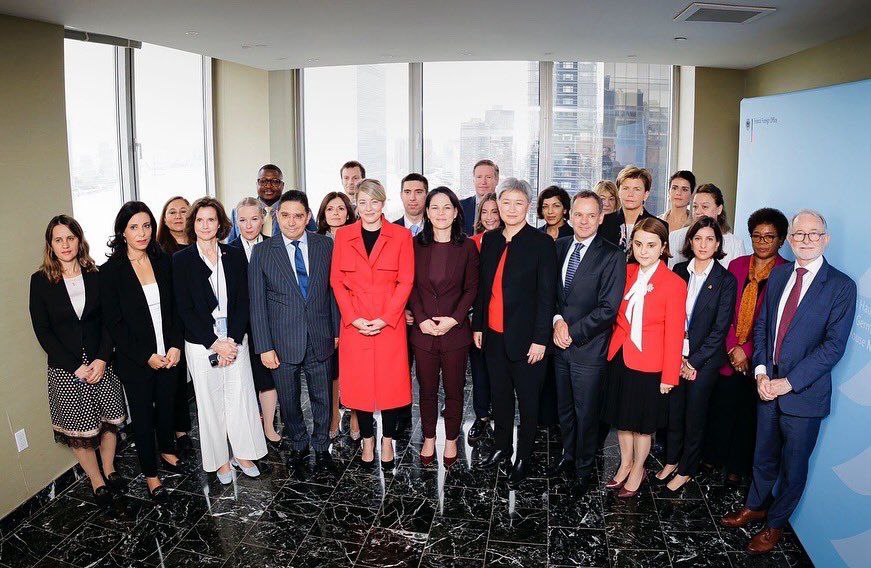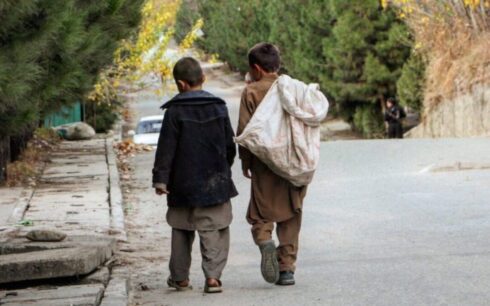Twenty-six countries have thrown their support behind a legal initiative led by Germany, Australia, the Netherlands, and Canada to hold the Taliban accountable for systematic human rights violations against women and girls in Afghanistan.
In a joint statement released by the German Foreign Office, these nations condemned the Taliban’s policies, which have severely curtailed the rights of Afghan women and girls since the group took control of the country in 2021.
The statement begins by outlining the dire situation facing Afghan women and girls under Taliban rule. “Since the seizure of power by the Taliban de facto authorities, the women and girls of Afghanistan have been subjected to the most severe systematic human rights violations,” the statement reads. It describes how the Taliban’s decrees, ordinances, and other measures have deliberately banned women and girls from public life, enforcing systemic gender-based discrimination. These actions have led to the widespread marginalization of women across Afghanistan, stripping them of their basic human rights and confining them to lives of isolation.
One of the most alarming developments, according to the statement, is the introduction of the so-called “vice and virtue” law, which effectively erases women from public spaces. The statement explains that under these laws, women and girls are not allowed to travel without a male guardian, show their faces in public, or speak freely. “Life for many women and girls in Afghanistan is like life under house arrest,” the statement notes, highlighting the severe restrictions on their movements and freedoms. The signatory countries emphasized that these measures deprive Afghan women and girls of their fundamental dignity and basic rights, further exacerbating their plight.
The joint declaration includes countries from across the globe, such as Spain, Sweden, Belgium, South Korea, and Iceland, all of whom have condemned the Taliban’s actions. “We, the above-mentioned States, condemn the gross and systematic human rights violations and abuses in Afghanistan, particularly the gender-based discrimination against women and girls,” the statement asserts. It points out that despite repeated calls from the international community for the Taliban to honor their human rights obligations, “the situation has not improved – to the contrary it continues to worsen.”
The statement also notes that Afghanistan, as a signatory to the Convention on the Elimination of All Forms of Discrimination Against Women (CEDAW), is legally bound to protect women’s rights. “Afghanistan is responsible under international law for its ongoing gross and systematic violation of numerous obligations under CEDAW,” the statement says, urging the Taliban to comply with its commitments under international human rights law.
In the face of these violations, the statement praised the resilience and leadership of Afghan women, who have continued to advocate for their rights despite the oppressive conditions. “Afghan women themselves have shown courageous leadership in calling for accountability,” the statement reads, calling for greater international support for their cause. The 26 countries reiterated their commitment to standing by Afghan women and girls in their struggle for justice and equality.
The legal action supported by the 26 countries builds on steps taken by Germany, Australia, Canada, and the Netherlands under Article 29 of CEDAW. These nations have formally requested that Afghanistan halt its violations of women’s rights under the convention. The statement underscores the significance of this initiative, noting that it is part of a broader effort to hold the Taliban accountable under international human rights frameworks. “We support the initiative taken by Australia, Canada, Germany, and the Kingdom of the Netherlands,” the statement says, while also indicating that the international community is prepared to consider other legal avenues if necessary.
The 26 countries also made it clear that this action does not imply any political recognition of the Taliban as the legitimate government of Afghanistan. “This action is without prejudice to our firm position that we do not politically recognize the Taliban de facto authorities as the legitimate representation of the Afghan population,” the statement emphasizes. It stresses that Afghanistan’s failure to meet its human rights obligations remains “a key obstacle to the normalization of relations” with the international community. However, the signatories insisted that the Taliban remain responsible for upholding Afghanistan’s international legal obligations, including under CEDAW.
In conclusion, the statement calls on the Taliban to immediately cease its violations of women’s and girls’ rights and engage in dialogue with the international community to address these concerns. The 26 countries affirmed their commitment to continuing efforts to protect Afghan women and girls, stating, “We will continue to also consider other possible options to be followed individually or collectively under CEDAW and other relevant human rights frameworks.”





